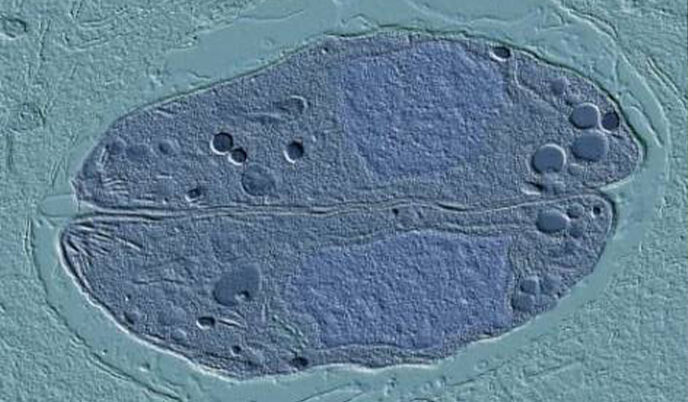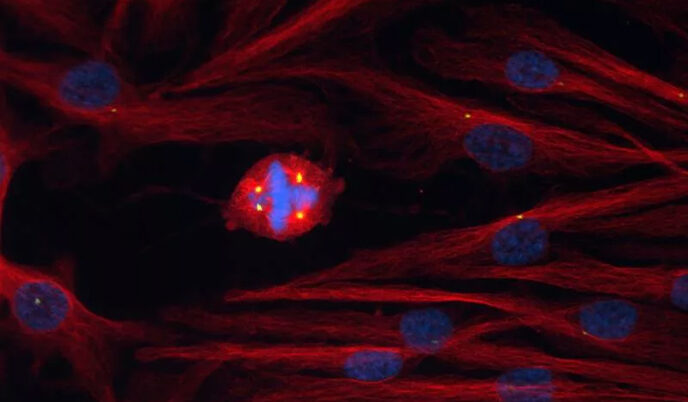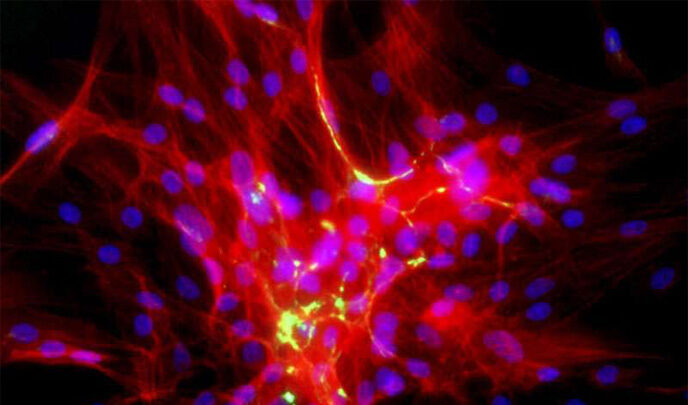
Simultaneous infection by two viruses the key to studying rare lymphoma
New research has found that a rare blood cancer can be simulated in the lab only by simultaneously infecting white blood cells with two viruses typically found in the tumors.

Thanks to science, parasite can have sex in mice, not just cats
Toxoplasma gondii, a single-celled parasite perhaps best known for its ability to trick mice into taking potentially fatal risks around cats and, in humans, as a serious threat to fetal health, has given up a long-held secret of its reproduction.

Can a sleep device give deep-space explorers a good night’s rest?
The Wisconsin Institute for Sleep and Consciousness (WISC) will be one of two sites for testing a device that might improve sleep and thus waking performance for people on long space voyages.

Investigation into fungal infection reveals genetic vulnerability in Hmong
Ten years ago, in Marathon County, Wisconsin, 55 people were sickened by an uncommon fungal infection called blastomycosis. Thirty patients were hospitalized. Two people died.

Researchers probe cell division defects to gain insight into cancer
From bugs to plants to animals, for all living things to grow they must create more cells.

Study: risk-based breast cancer screenings lack predictive value
Starting breast-cancer screenings based on personal risk factors instead of age in women 40-49 years of age may significantly delay the detection of some early-stage breast cancers while also decreasing the number of false-positive mammograms and biopsies that reveal growths that are benign, according to new research from the University of Wisconsin School of Medicine and Public Health.

Researchers reveal the pioneering role of Zelda in zygotic gene activation
Researchers at the University of Wisconsin School of Medicine and Public Health have developed a novel strategy to address the role of vital proteins during early embryonic development.

David Brow develops improved method for tracking molecular signals in living cells
A University of Wisconsin-Madison researcher has established a new approach to understanding how protein and RNA molecules in a cell cooperate to direct the proper expression of genes.

Survey finds LGBT health disparities in Wisconsin
Findings from the Survey of the Health of Wisconsin (SHOW), a population-based health examination survey, show that there are disparities in health outcomes, health care access and quality among LGBT individuals in Wisconsin.

‘Bad guy’ fibrocytes could help rebuild damaged tissue
Could a blood cell type responsible for scarring and diseases such as pulmonary fibrosis be repurposed to help engineer healthy tissue?

Researchers identify genes associated with facial beauty
Researchers have discovered that an individual’s sex determines where in the genome are genes that affect perceived facial attractiveness.

Study shows disparities in contraceptive care for sexual-minority women
Young sexual-minority women frequently encounter stigma or misinformation in health care settings that can compromise their ability to get the contraception they need, according to a new study from the Department of Obstetrics and Gynecology at the University of Wisconsin School of Medicine and Public Health.